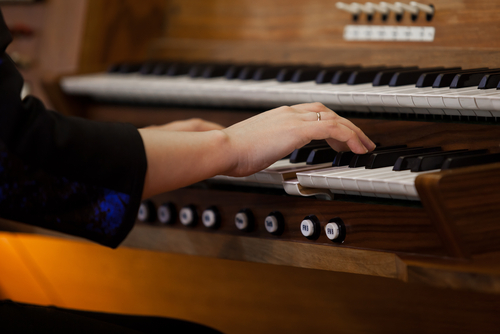How we celebrate and participate in Sunday Mass matters, most especially in terms of our sung prayer. The church document, “Sing to the Lord: Music in Divine Worship” (United States Conference of Catholic Bishops, 2007) gives us some guidelines to follow. Let’s look at this guideline particularly as regards the role of the Director of Music in a parish.
1. “God has bestowed upon his people the gift of song. God dwells within each human person, in the place where music takes its source. Indeed, God, the giver of song, is present whenever his people sing his praises. … This common, sung expression of faith within liturgical celebrations strengthens our faith when it grows weak and draws us into the divinely inspired voice of the Church at prayer. Faith grows when it is well expressed in celebration. Good celebrations can foster and nourish faith. Poor celebrations may weaken it. Good music “make[s] the liturgical prayers of the Christian community more alive and fervent.”
There is no doubt that music is essential in our liturgical prayer. God dwells where music takes its source. In order to do well what we are called to do, to the best of our ability at Mass, each parish community needs the guidance of a music director whose sole focus and responsibility is to raise our sung prayer to the necessary level of “good celebration.”
26. “Singing is one of the primary ways that the assembly of the faithful participates actively in the liturgy. … The musical formation of the assembly must be a continuing concern in order to foster full, conscious, and active participation.”
A parish music director needs to be a reflective person of strong faith, trained in music, knowledgeable about the liturgy, and trained in the issues of liturgical music. She must have a current understanding of church, and be a lifelong learner in Catholic theology. He must be articulate enough to communicate these deeper understandings to others, through word and song. She must have the ability to call forth authentic participation from the assembly, and form them musically through effective shaping of assembly repertoire, as well as working pastorally and collaboratively with other parish musicians.
45. “The director of music ministries:
-
fosters the active participation of the liturgical assembly in singing;
-
coordinates the preparation of music to be sung at various liturgical celebrations; and
-
promotes the ministries of choirs, psalmists, cantors, organists, and all who play instruments that serve the liturgy.
49. Liturgical musicians are first of all disciples, and only then are they ministers...musicians belong to the assembly of the baptized faithful; they are worshipers above all else. … Thus, musicians who serve the Church at prayer are not merely employees or volunteers. They are ministers who share the faith, serve the community, and express the love of God and neighbor through music.”
51. “The community of the faithful has a right to expect that this service will be provided competently. Pastoral musicians should receive appropriate formation that is based on their baptismal call to discipleship; that grounds them in a love for and knowledge of Scripture, Catholic teaching, Liturgy, and music; and that equips them with the musical, liturgical, and pastoral skills to serve the Church at prayer.
52. “The service of pastoral musicians should be recognized as a valued and integral part of the overall pastoral ministry of the parish or diocese.”
Song is not just a beautiful enhancement of our liturgy. It is not simply religious music that stirs appropriate emotions. It is integral and necessary to our communal prayer. It makes audible a depth of communication and understanding that is more transformative than words.
Song in the liturgy finds its purpose wedded to the actions of our ritual. They are one movement of prayer and worship. A parish music director must serve the liturgy with this understanding of the integrity of ritual music.
124. “Music does what words alone cannot do. It is capable of expressing a dimension of meaning and feeling that words alone cannot convey.
125. The role of music is to serve the needs of the liturgy and not to dominate it, seek to entertain, or draw attention to itself or the musicians. … The primary role of music in the liturgy is to help the members of the gathered assembly to join themselves with the action of Christ and to give voice to the gift of faith.”
The parish music director must be a trained musician, steeped in God’s Word and in the principles of music and liturgy as expressed in “Sing to the Lord.” Parishes can obtain a job description for a Parish Music Director by contacting the Office for Worship at [email protected].
Start your day with Always Forward, our award-winning e-newsletter. Get this smart, handpicked selection of the day’s top news, analysis and opinion, delivered to your inbox. Sign up absolutely free today!

